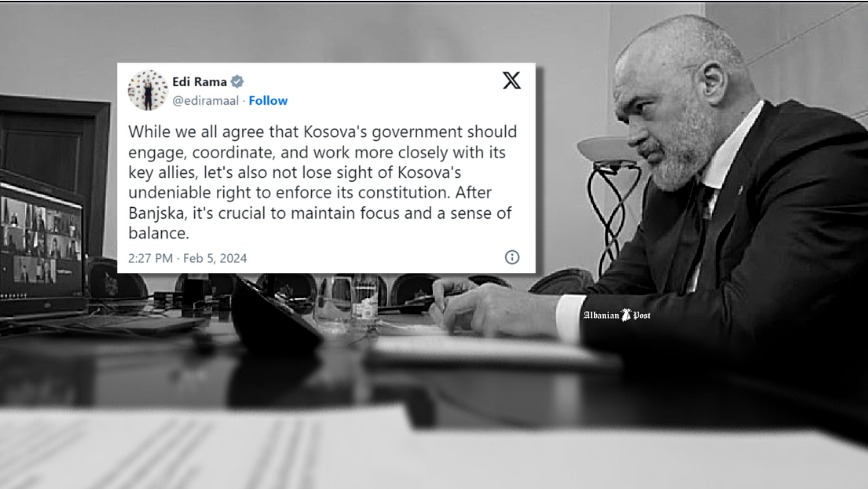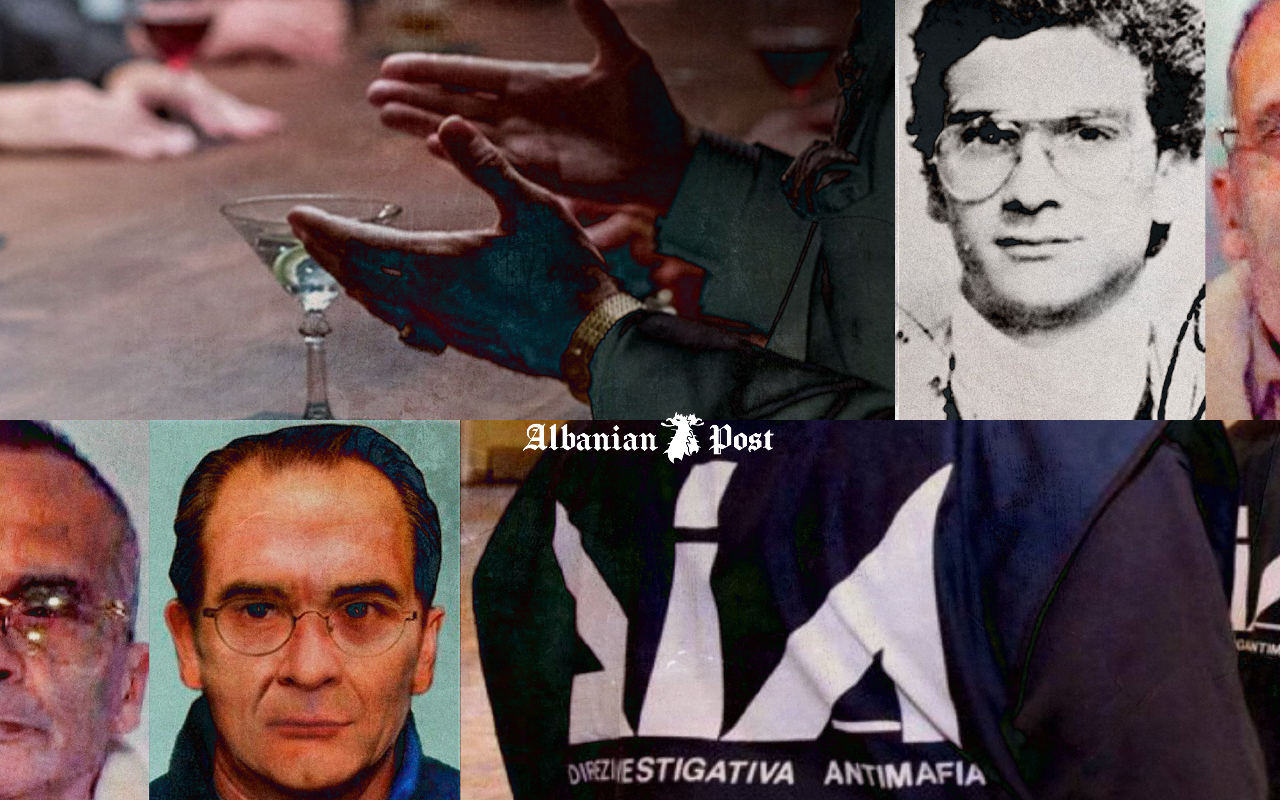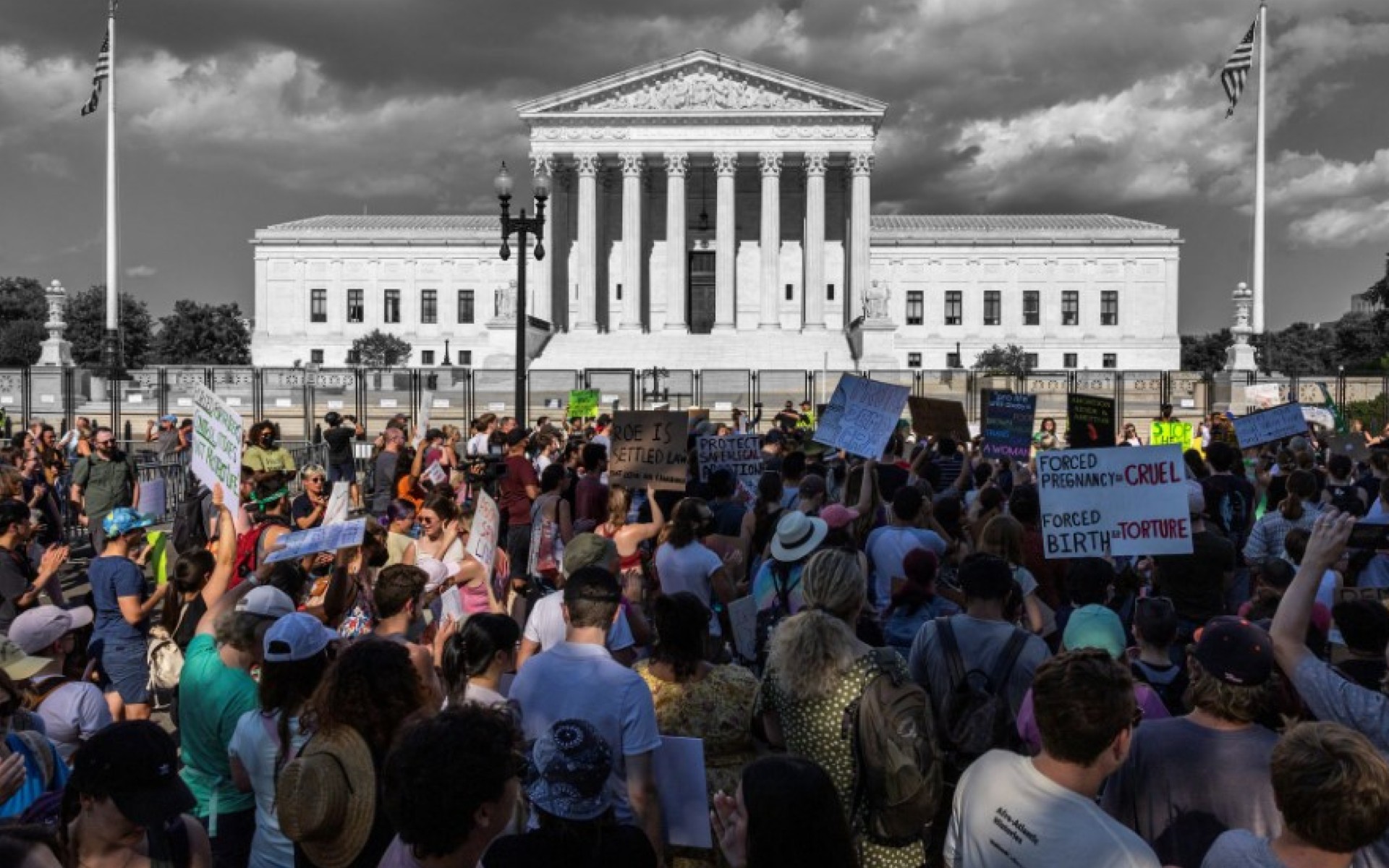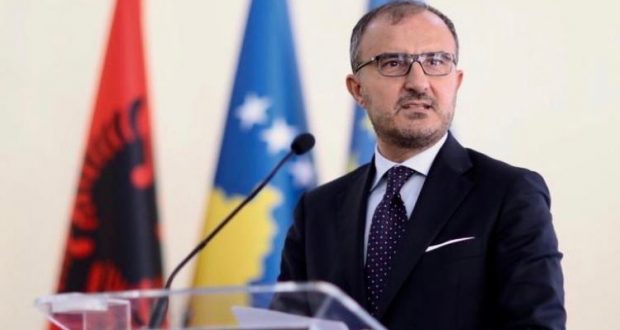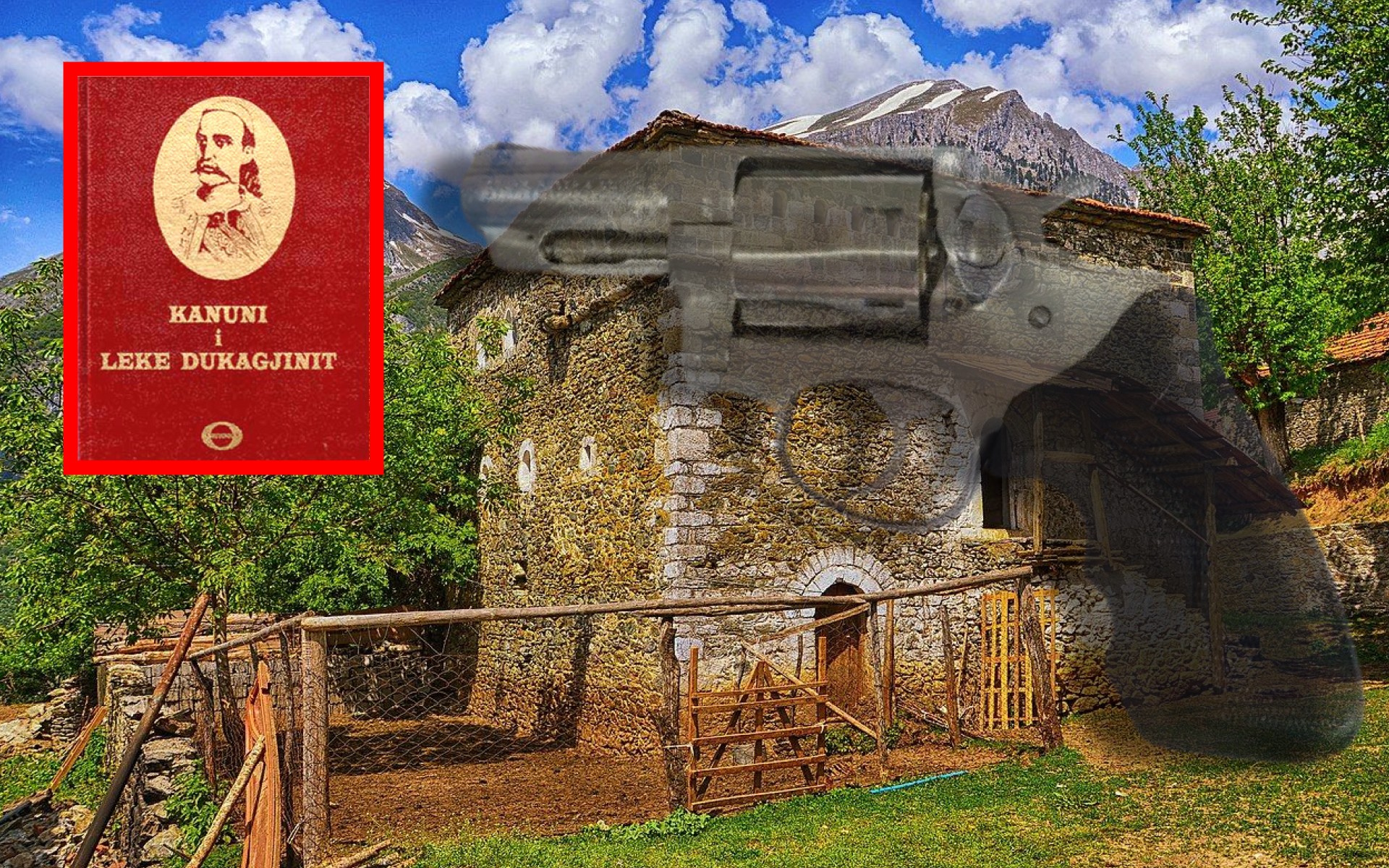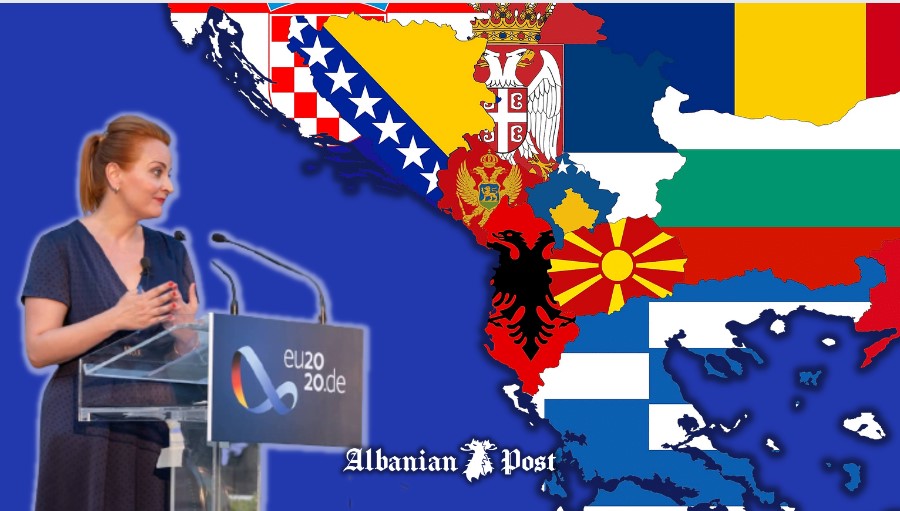Interview Nevenka Tromp – “Kosovo, the consequences of the (non)completion of the disintegration of Yugoslavia, former KLA leaders in The Hague, Association, Dialogue, Open Balkans”

Nevenka Tromp, an expert on the issues of the Balkans, those of the former Yugoslavia and war crimes, also a lecturer in the Department of European Studies at the University of Amsterdam in an interview with Albanian Post elaborates the course of events before and after Kosovo’s independence, navigating through possible and realistic scenarios of Kosovo’s position as an independent state in relation to Serbia.
She argues over a series of historical premises against Serbia’s expansionist ambitions, the consequences of the (yet not finished) disintegration of Yugoslavia, the relativization of the 1999 war in the Kosovo Specialized Chambers through which Serbia sees the advantage of reformulating the narrative and character of the liberation war of Kosovo.
Below you can read the full interview with Tromp.
….
Albanian Post: Given the current circumstances, and the blockade that the dialogue between Kosovo and Serbia has experienced, do you see any way out of it, so that a compromise solution can be found. And what is a “compromise” that is mentioned frequently, especially from the Serbian side?
Tromp: Before answering this very important question, it would be useful to situate the Kosovo-Serbia dialogue – also known in public as “Brussels dialogue” – in a relevant historical and political context. It all started with the 17 February 2008 declaration of independence of Kosovo. Then European Union was not capable and willing to recognize fully Kosovo’s independence, thus in Europe, Kosovo was challenged on the first days of its independence by European Union states, together with Serbia, Russia and China.
We have to remember that to this day five EU member states still do not recognize Kosovo as an independent state. This illustrates best what are the chances for Kosovo to become a EU member and also explains why all Kosovo governments since 2008 onwards demonstrated – in words and deeds – willingness to engage in all EU initiatives for “normalization” of relations with Serbia.
In relations to the UN, Kosovo can never become a member of UN even after more than 50% of the UN states recognized it officially if the UN Security Council does not pass it. Russia and China – two of the five states with a veto right – are important players when it comes to Kosovo’s UN membership. They will never let Kosovo become a UN member state because of their own domestic geopolitical concerns.

This complexity created a situation for Serbia to keep the diplomatic war over Kosovo going and to also keep Kosovo on hold in European and international level. Serbia reacted with an application for an advisory opinion on the independence of the ICJ (International Court of Justice), a UN court situated in The Hague. In 2010, the ICJ issued the opinion, which confirmed that the independence of Kosovo did not breach the international law.
Serbia’s strategy to reverse Kosovo’s independence failed causing a public humiliation of Serbia’s state elite before a global audience. Serbia had to find a way out of this debacle, and it engaged in a face-saving diplomatic and political process for which it sought the cooperation of the EU.
Jointly, Serbia and the EU called via the UN General Assembly for technical negotiations regarding the normalization of the relations with Kosovo and Serbia. Kosovo was not even consulted and its government was faced with a “take it or leave it situation,” and was left with no choice but to follow the lead of the EU and Serbia. The talks in Brussels started in 2011 with three major issues to be dealt with: regional cooperation; freedom of movement; and rule of law. After several rounds of talks this “technical dialogue” ended in 2012 with some very important agreements being achieved, such as mutual recognition of university diplomas and joint border crossings in North Kosovo etc.
What followed after 2012 was the stage of known as “High Level Dialogue,” which started with a promising agreement in April 2013, which dealt with principles for normalization of the relations between Serbia and Kosovo.
Albanian Post: Can we see the status of the Association of Serb Municipalities as a major obstacle in the success of the “Brussels dialogue” from 2013 onwards?
Tromp: Now, this is where the word “compromise” is important. Serbia has lost Kosovo in June 1999 by losing the war that lasted from 1998 to 1999 but it never accepted the loss of Kosovo as its territory. Although after the capitulation of Serbia and the total withdrawal of Serbia’s security forces from Kosovo Serbia was never willing to let the whole of the Kosovo territory go. Serbia used the “High Level Dialogue” stage to advance its real political agenda, i.e. never to agree to Kosovo’s independence in its post-1999 borders.

Serbia insisted on a special status of the Serb municipalities that already existed as the Association of Serb Municipalities in North Kosovo. The Brussels dialogue from 2013 to 2015 was very much about the modalities for inclusion of more municipalities in the concept of Community of Serb Municipalities in Kosovo, that represented expansion of the existing format of the Association was to be renamed into the Community of Serb Municipalities and to be expanded with more municipalities.
The disagreement on the status of the Community of the Serb Municipalities revolved around the demands by Serb side on the autonomy of the association of the municipalities in regard to but with no legislative, judicial or executive powers. The Kosovo side could not accept it . The concern was that Serbia had been playing the same card of ethnic separation of the Serbs by claimed territories from the rest of Kosovo, following the pattern of Bosnia and Herzegovina, where it preserved the territory of Republika Srpska as a war booty – despite losing the war in 1995.
The creation of the Serb municipalities in Kosovo and the RS in Bosnia and Herzegovina was made possible by the support of the international community – and with the plan to incorporate these Serb-claimed territories into Serbia. By 2015 the negotiations about the status of the Serb municipalities were as good as dead. The Brussel dialogue was kept alive until 2017 but with no results coming out of it.
This EU driven process needed the mutual recognition of Serbia and Kosovo as the starting point for the pursuit of the EU membership by both states: it would help Kosovo would to start the Stabilization and Association Agreement (SAA); and Serbia would continue with the accession process.
Albanian Post: Serbia now insists on the formation of Serbian majority Association of Municipalities, which Albin Kurti’s government, at least declaratively, rules out. What would this Association look in practice in case it is implemented?
Tromp: This existence the Association of Serb Municipality has been part of every post-war governance plan for Kosovo. The big issue is if this could be worked on without interference from Belgrade. Serbia never gave up on instrumentalisation of the Serbs who remained to live in Kosovo for the legitimization of its territorial expansion.
Prime Minister Albin Kurti has now the experience of the failed negotiations about the same issue in the framework of the Brussels dialogue and he knows as any other politician in Kosovo that Serbia cares more about the Serb claimed territories in Kosovo than about the Serb people living there.
Serbia had to face the fact that the independence of Kosovo is irreversible, and yet it never gave up the possibility of the partition of Kosovo to its advantage. Serbian state elites obsessively want to revise the historical narrative that has been marked by political and military defeat in 1999 in Kosovo and succeeding in getting any part of the Kosovo territory by negotiations – would serve for Serbia to claim a historical victory.
If we for a moment disregard the scheming from Belgrade, the status of the Serbs living in Kosovo at this moment – and we talk about 10% of the Kosovo population – needs to be addressed. In the areas that they live majority but also elsewhere in Kosovo, the security and respect of their individual and collective human rights should be safeguarded and guaranteed. This is something that needs the political attention rather sooner than later.
But preferably without Serbia representing the interests of the Kosovo Serbs.
Albanian Post: How is it possible that after 30 years after we encounter such instability in the region?
There are two very important levels of analysis for answering of this question. One level is that the disintegration of Yugoslavia is still not finalized. The factual basis for that is that despite the 1990s wars that were marked but Serbia’s attempt to carve its post-Yugoslav borders with the Serb-claimed territories in Croatia, Bosna and Herzegovina and Kosovo ended up in military defeats – Serbia was never treated as a “loser” by the international community.
This explains why after 30 years since the violent break-up of Yugoslavia started and 22 years since the war in Kosovo ended, Serbia keeps the issue of its borders with BiH and Kosovo as an open political question. What was not achieved by aggressive wars, Serbia has keeping on the agenda of the post-conflict governance agenda.

The second level of the analysis has to do with the proclaimed and hidden agenda of the “international community” and here I primarily refer to the role of the US and the EU, then still with the UK as its member. The US and the EU member states represented a major force behind the end of the wars in BiH and in Kosovo by forces in the military sense in combination of a political settlement and forcing though a peace agreements that were accepted by Serbia.
The historical appraisal of the role in the West has been evaluated by the use of the military means thought the NATO by bombing the Serbs and forcing them to negotiate and accept the peace in BiH and in Kosovo. It is difficult to break this narrative of West saving the Bosnian Muslim and Kosovo civilians from the atrocities committed by the Serbs. The reality is much more nuanced.
First of all, why did not the West intervene much earlier in the war in BiH and save the human lives? Instead, the West waited for the Serbs to conquer the eastern Bosnia in the summer of 1995 and cut the historical Bosniak territory of Sandžak in half allowing Serbs to create the borders of the Republika Srpska all the way along the Driva river with Serbia.
In the process the Serb forces committed genocidal crimes against Bosnian Muslim population in Srebrenica and Žepa? How different the borders of the RS would have been if the NATO intervened in May of 1992? And imagine how the Dayton peace plan would have looked like if negotiated and signed in 1993?
Similar questions are relevant for Kosovo? Why did the West agree to keep Kosovo from the Dayton peace negotiations as requested by Milošević? How different the Kosovo’s history would have been if the Serbia’s apartheid policy of repression in Kosovo was dealt with in in the Dayton peace package in 1995? Two post-Yugoslavia states with the majority of the Muslim population were the arena of the most heinous crimes by the Serb armed forces.
The Serb territorial conquests in both wars – in BiH and in Kosovo – were planned by the same political elites under the leadership of Slobodan Milošević. The criminal blueprint of the plan was based in the Serbia’s plan to ethnically separate Serbs from the non-Serbs and then ethnically homogenized the territories under the Serb control. The RS borders were finalized by genocidal crimes in eastern Bosnia and sealed off by the Dayton peace agreement.
After the capitulation of Serbia and the signing of the Belgrade and the Kumanovo agreements that seal off the loss of Kosovo for Serbia, there was not militarily and political logic to keep the North of Kosovo territory from the rest of Kosovo. By doing it, the international community basically created the same blueprint of ethnic separation as it was the case in BiH.
Could it be coincidence that the international community has accepted the territorial division of BiH and of Kosovo and this division survived decades after the end of the war. The internal territorial division of BiH and Kosovo has made of these two states non-functional states. The existence of the RS and Association of Serb Municipalities also keeps the Serbia’s ambition of “border correction” alive.

What Milošević state elites failed to achieve by aggressive wars and commission of atrocities against non-Serb population, the post-Milošević state elites try to achieve now through diplomatic means and with the support of the international community has now been used as an argument for change of their borders as the solution to make them “stable” and “functional” states.
Albanian Post: It was spoken of a border correction between Kosovo and Serbia, one that supposedly would have given the north of Kosovo to Serbia, and in return would have given the Preševo valley to Kosovo. What are your thoughts about such a scenario, and did it fail?
Tromp: In the current geopolitical situation, there are following scenario’s for the geopolitical space of post-Yugoslavia. First two scenario’s deal with the change of the borders.
First scenario has been at the negotiation table but behind the closed doors since 2017. What we know about this initiative comes from a fragmented sources and it is not a coincidence that the “border correction” scenario was revised after the failing of the Brussels dialogue. Serbia was participating at the EU led negotiations in order to achieve the border changes with Kosovo.
This “deal” included the swap of territories and population according to which Serbia would get the North of Kosovo with its four municipalities of North Mitrovica, Leposavići, Zubin potok and Zvečan with the population of some 70.000 Kosovo Serbs. In return, Kosovo would get the Preshevo valley with the municipalities of Preševo, Bujanovac and Medveđa with the population of some 70.000 Albanians. Two regions are of a similar size in territory and the population numbers. However this scenario has been more or less archived now due to many very important and valid reasons.
First, it would become a self-serving argument for Serbia to say that they were right from the start when Milošević stripped Kosovo of its autonomy and subsequently introduced the apartheid regime under the pretext that the physical existence of the Serbs in Kosovo was threatened by the Kosovo Albanian majority. The leadership of Aleksandar Vučić, 35 years onwards would claim the glory of ‘rescuing’ the Serbs by uniting them with Serbia.
Secondly, the changing of Serbia’s borders by its expansion on the North Kosovo territory would be used by Belgrade to recast the extent of the historical military and political defeat that Serbia suffered in Kosovo in 1999. Inclusion of the North Kosovo as a war bootie into Serbia would serve as a face-saving event that would be used by Serbia to recast its capitulation in a victory 30 years after the end of the war in Kosovo.
Thirdly, this type of the “correction of borders” would be a precedent for more border corrections and Serbia would have used it for insisting on the including of the RS in its territories. This all would lead to a domino effect that would lead to more chaos. It would be also interesting to analyze why the Kosovo government at the time was considering to engage in the “border correction.”
Second scenario that involves the change of the borders is the one that involves a unilateral change of borders of the type that the RS leader Milorad Dodik has been preparing for some time now by declaring to form a RS army and RS customs office. Any one-sided change of the borders could lead to an armed conflict. Once the war starts there is no certainty which side will win.
We have many examples in history where a state went into a war, lost it and disappeared from the map.
Belgrade has been arming itself and trumpeting it via media. Vucic and Dodik both go to Moscow and are creating an impression that they have Russia on their side. The reality of the recent wars tells us that Russia never did anything to help Serbia in their war efforts: in March 1991, General Yazov refused to help to keep Yugoslavia together; and in June 1998 Yelcin refused to help Milošević to keep Kosovo.
There is no reason to think that Russia would get involved in a regional war risking an European war to help Serbia. Russia has been involved in hybrid wars in the Balkans which do not aim to assist any of the local players such as for example of Serbia. Russia uses the Balkans to destabilize Europe, i.e. EU by politics that combine fear, indifference and opportunism. The Western powers certainly do not want another war on the European soil. The 2020s are very different of 1990s and the current strategic issues such as a the current refugees crisis do indicate that the armed conflicts in the Balkans would create chaos and many undesirable and intended outcomes. Yet, the outbreak of the war is not always a rational decision of one party.
Armed conflict can be also result of a series of mistakes and local escalations. This certainly makes a war option as a consequence of unilateral border changes as a grim reality. Serbia showed that it lost all the wars in the 1990s, and there is no guarantee that its excessive armament will lead to a military victory. Without any ally from outside, like Russia for example, Serbia might start new wars and lose them again. It might lead to change of the current borders of Serbia to its detriment.
Other two scenarios are based on the keeping the current borders as they are. In one scenario the international community accepts the tension about the borders and sustains in the region a situation of permanent instability, following the model that has been created in the Middle East. Paradoxically, the permanent instability becomes also model to control the region.
The most promising scenario would be one of a speedy Euro-Atlantic integration by which all the Western Balkans states would become members of the NATO and the EU in the near and foreseeable future. Fr this NATO and EU has to make a political decision and not hide behind policies, rules and regulations. Crisis times ask for different sort of decisions and taking the risks.
The NATO and EU membership would make the disputed borders of the Western Balkans states irrelevant – or at least less relevant. Serbia might be the only state that has reservations about its EU future. It declared long time ago never to become a NATO members due to the NATO intervention in 1999 that led to Serbia’s military defeat and the loss of Kosovo.

Its objective to become a member of the EU has not been a political given. But all the other Western Balkans states see the Euro-Atlantic integration as the only concrete future perspective. For this to become a reality the West and Brussels will need to free themselves form the Islamophobic stereotypes and to accept that the Muslims in BiH, Kosovo and Albania – the secularized and practicing ones – are part of the European culture and want to remains so.
Albanian Post: What are your thoughts on the former KLA members that are being tried in the Special Court in the Hague for war-crimes, one of them being the former President of Kosovo, Hashim Thaci? Do you think that their indictments have solid bases, and how do you see it unfolding in the times to come?
Tromp: The creation of the Kosovo Specialist Chambers has been one of the concessions to Serbia during the Brussels dialogue time. While it engaged in the dialogue about the normalization of the relations between Kosovo and Serbia, it always kept its own hidden agenda. Serbia never in reality was willing to accept any compromise that would entail its recognition of the Kosovo as an independent state.
The goal of Serbia was to recognize it only if it can get it North of Kosovo. Yet in the process of the Brussels dialogues Serbia sought and got many concessions, one of the concession was to push the agenda of the establishment of the Kosovo Specialist Chambers to deal with the allegations of “organ harvesting” practices as described by former ICTY Prosecutor Carla del Ponte and her compatriot and colleague Dick Marty. The investigation in these outrageous allegations that first appeared in 2008 and were then kept alive in the Marty Report of 2011, led to the creation of the Kosovo Specialist Chambers in 2015.
The political background of the creation of this court is such that implicates also the Kosovo ruling elites in that time as the Kosovo Constitution had to be changed in order to establish this courts outside of the Kosovo territory. These changes were done under enormous political pressure by the US and the EU and the Kosovo state representatives had no choice but to comply, knowing that they have engaged in a dangerous precedent for Kosovo.
The KSC was constituted in 2015 to investigate and try only KLM members for the crimes that Serbia claims were committed against the Kosovo Serbs. In the mandate of the KSC, the Marty report has been mentioned as a starting point but no “organ harvesting’ allegations survived the reality check. Yet, Serbia stull uses the “organ harvesting” as a way to demonize the `Kosovo Albanians and especially the KLA. The constitution of the KSA was for Serbia a huge diplomatic victory. Only the existence of this courts is enough for Serbia to relativize the commission of the crimes by the Serbian armed forces against the Kosovo civilians in the 1999s.
By “demonizing” the KLA it actually shifts the attention from the Serb side as a principal “perpetrator” of the crimes in the Kosovo conflict and recasts KLA and the Kosovo Albanian side. Hardly anyone ever mentions the fact that in the indictments so far there is a handful of the victims mentioned of which the majority relate to the Kosovo Albanians – who were considered by the KLA to be the Serb spies or collaborators.

The establishment of the KSC served Serbia’s effort to relativize the criminal responsibility and recast the KLA in the role of a “villain.” This was also the part of the strategy to create for Serbia favorable diplomatic circumstances in order to return the question of the borders of Kosovo to the negotiating table. Serbia used the Brussels dialogue to push forward its “reputational revival” and the KSC was a major victory in these efforts.
All indicators show that the EU pushed for the establishment of this court for the sake of the political expediency in the process of reaching an agreement for the “normalization” of the relations between Kosovo and Serbia. In reality, Serbia never wanted to “normalize” the relations with Kosovo. 10 years after the Brussels dialogue, Serbia has not moved one inch closer to recognize Kosovo. The KSC leads its own life far from the public limelight.
I watch the court proceedings as posted on YouTube by the KSC outreach office. Sometimes, I am the first one to view the posted recording. Only several of the videos show to have more that 300 viewers.
In short, there is no interest from the outside world for these proceeding. The legal professionals and scholars do not follow it as many of them do not take it seriously. It is important that these proceedings are followed in Kosovo by legal professionals, state officials and public.
Putting the KLA commanders on trials indicting them for the crimes committed during the armed conflict in period of 1998 and 1999, also concerns the nature of the liberation war by which Kosovo freed itself from the Serbian apartheid rule.
Albanian Post: Do you think that Open Balkan is an initiative that avoids potential wars?
Tromp: I do not think that the Open Balkan initiative is there to avoid potential wars. I think that this initiative is driven by Serbia’s geopolitical agenda. It also shows how able Serbia is to advance its geopolitical agenda.
Using the Brussels dialogue to its own ends, Serbia managed to disempower the politicians such as Thaci and Veseli, who resigned once the KSC issued indictments against them and has moved to the next stage of its geopolitical planning pursuing the Open Balkan initiative.
With an initiative such as the Open Balkans – currently supported by Serbia, Northern Macedonia and Albania – Serbia is trying to redraw the borders of post-Yugoslav states as a precondition for Serbia’s entry into the EU. This initiative, which is also called “Little Schengen”, flirts with EU membership while in fact looking for a way for Serbia to legitimize the consolidation (read enlargement) of its post-Yugoslav borders and to change the borders of both Serbia and Albania by exchanging territories according to ethnic principles. so that the north of Kosovo belongs to Serbia and the rest of Kosovo merges with post-communist Albania into one state.
This initiative aims to create an enlarged states of Serbia and Albania at the expense of smaller neighboring states with Serb and Albanian populations. Therefore, it is not surprising that this initiative does not have the support of Kosovo, Montenegro and BiH.
But it is surprising that it has the support of Northern Macedonia because this approach to ending the disintegration of Yugoslavia directly calls into question the territorial integrity of this country because who will be able to stop the inclusion in this new Albania and western parts of Northern Macedonia where Albanians live in ethnic enclaves?
Last from the rubric
-

“Decision on Dinar – unfortunate and unnecessarily provocative”, interview of Albanian Post with Jonathan Moore
-

Albin Kurti’s eight fundamental problems
-
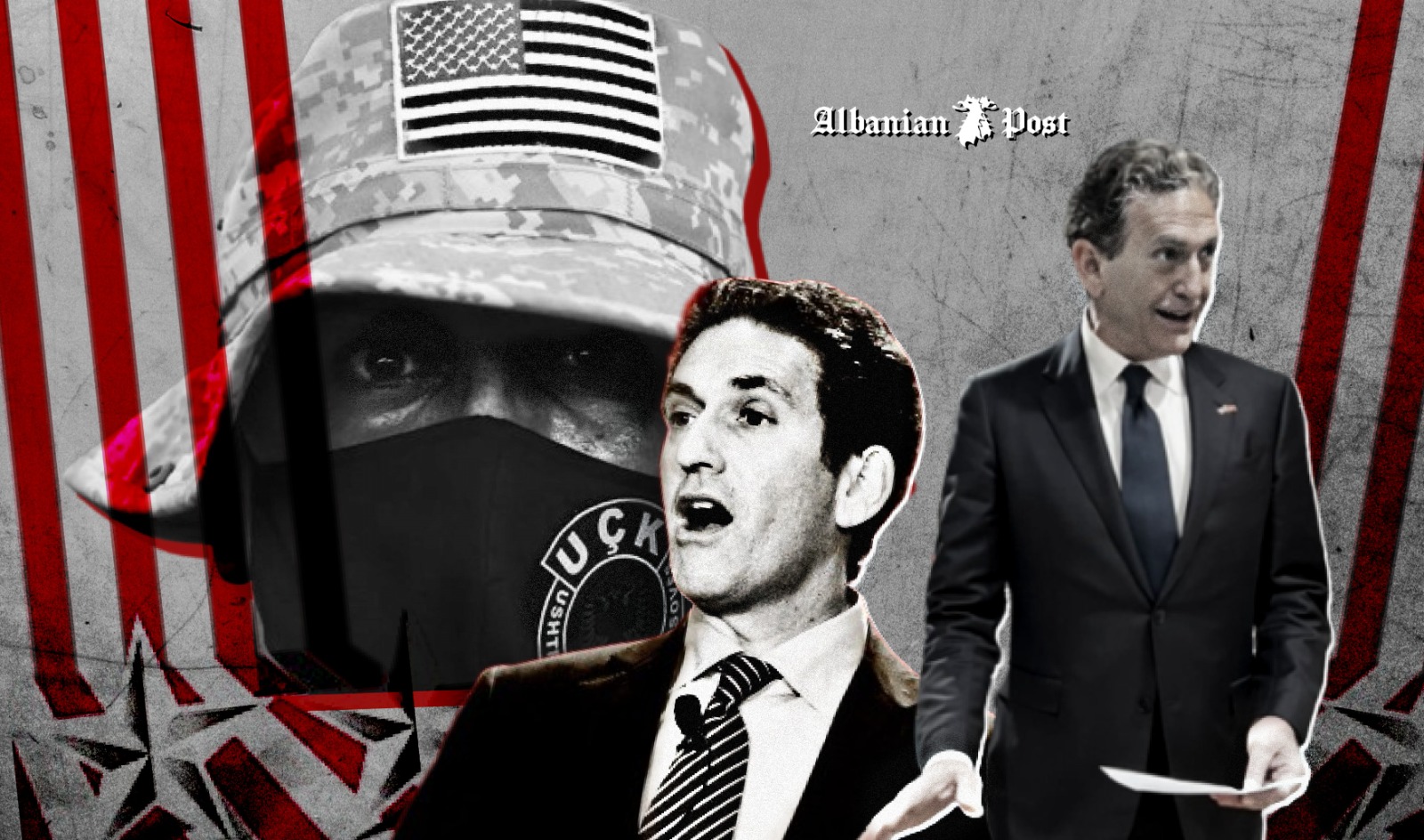
“History will record that the KLA and the United States were partners in preventing a genocide,” exclusive interview with James Rubin
-
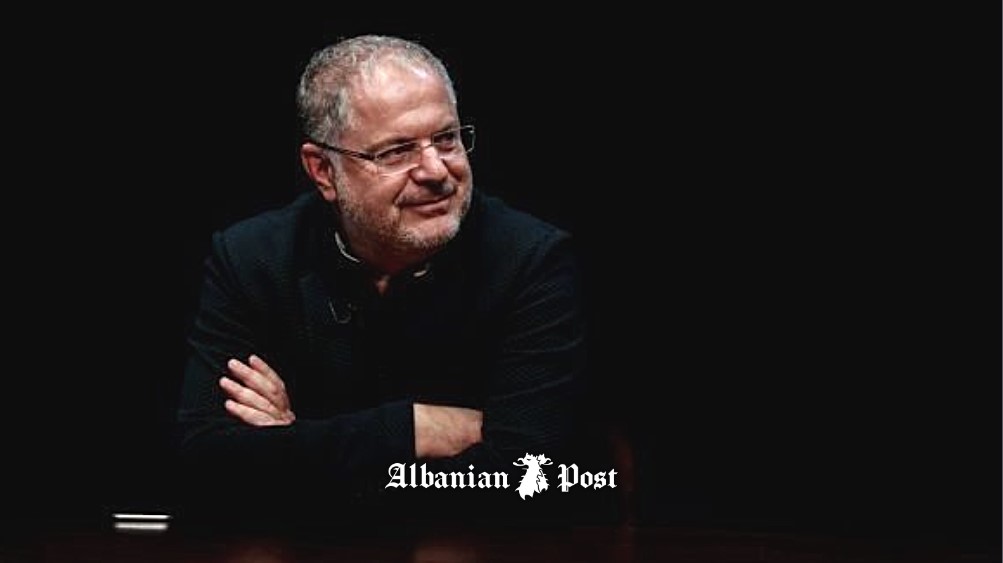
Short public letter to fellow journalists and civil society activists in Serbia, who are critical of Aleksandër Vucic as I am of Albin Kurti in Kosovo
